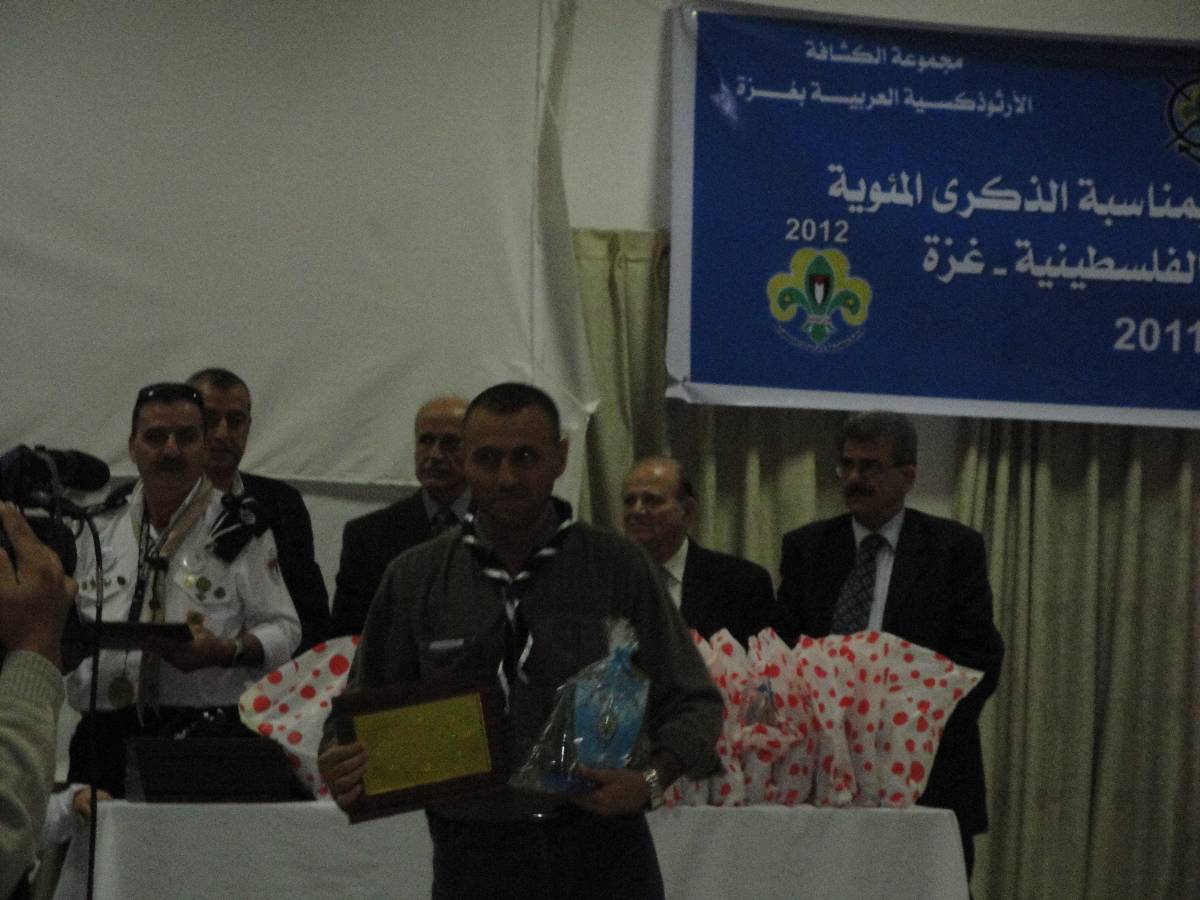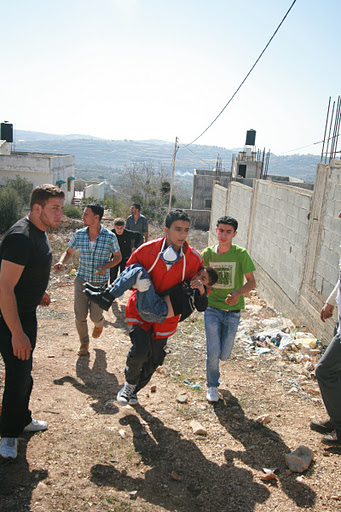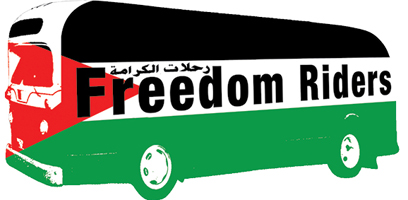Month: November 2011
-
Palestinian Scouts welcome exiled prisoner to Gaza
by Joe Catron 12 November 2011 | International Solidarity Movement, Gaza Palestinian Scouts and their families rallied in the Gaza YMCA Friday afternoon to honor former political prisoner Christian Al-Bandak and welcome him to Gaza. Al-Bandak, who donned a Scout neckerchief to receive a commemorative plaque, is one of 477 prisoners already released by Israel…
-
Illegal road closure in Kufr Qaddoum leads to arrests
by Thom Andrews 11 November 2011 | International Solidarity Movement, West Bank Today marked the 5th month of the village of Kufr Qaddoum’s campaign of non-violence against the Israeli military’s decision to illegally close their main road to Nablus. What began as another peaceful demonstration quickly transformed into a military assault on the village. Over 200…
-
Solidarity with the Palestinian Freedom Riders
10 November 2011 | Jewish Voice for Peace On November 15th, Palestinian activists will attempt to board segregated Israeli settler public transport headed to occupied East Jerusalem in an act of civil disobedience inspired by the Freedom Riders of the U.S. Civil Rights Movement. Fifty years after the U.S. Freedom Riders staged mixed-race bus rides…



